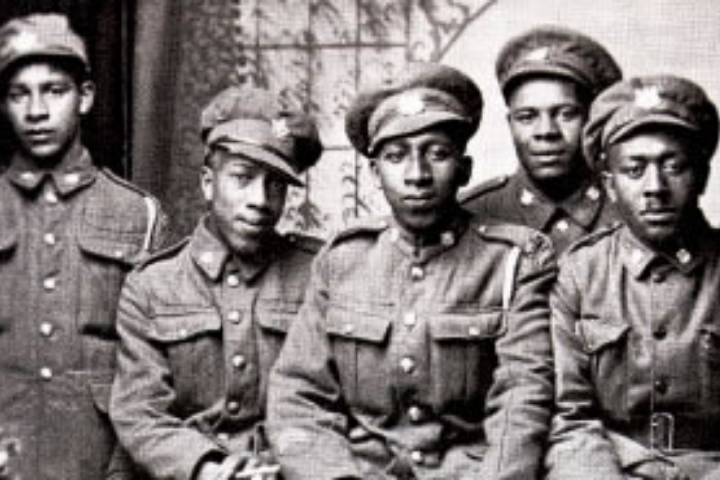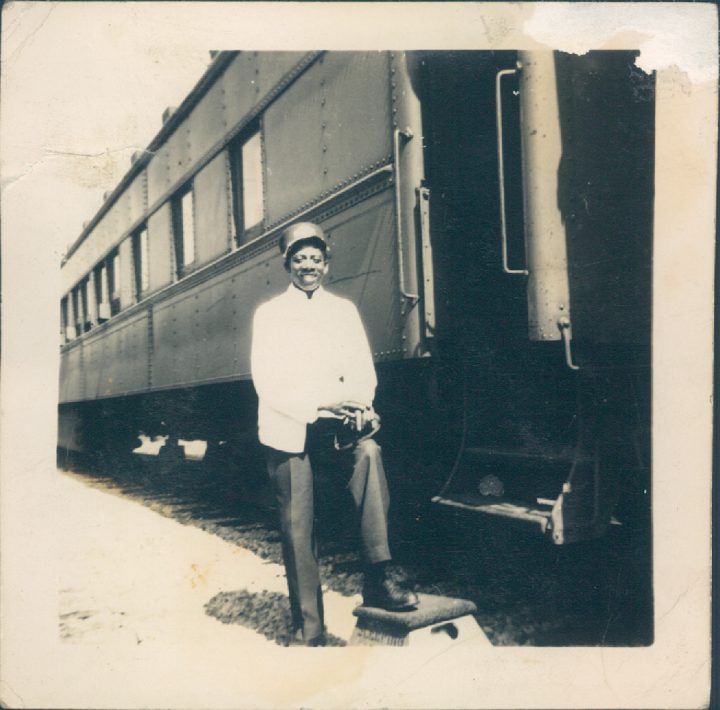Black soldiers had to fight to be able to fight on behalf of Canada — but academics say their unique plight often goes unrecognized.

“When we talk about veterans, we don’t talk about Blacks,” said Kathy Hogarth, a University of Waterloo associate professor whose work focuses on marginalized populations in Canada.
“If we begin to talk about Blacks, we have to add another layer because there was another fight to even get into fighting for our country.”
In the First World War, Black men faced barriers when trying to enlist in the Canadian military.
It was dubbed the “white man’s war.”
But that didn’t last long.
In 1916, amid shortages, they were segregated into a battalion and given non-combat duties. The No. 2 Construction Battalion, which became known as the “Black Battalion,” was the subject of protests and opposition.
Black men, rejected on the basis of their skin colour, were later subject to conscription, and often held against their will.
“Blacks fought for the freedom of Canada, while at the same time, Canada was fighting for the erasal of Blacks,” Hogarth said.
Once the war ended, soldiers returning home were honoured. Black Battalion’s efforts were not recognized until 1982.

Get breaking National news
Coverage will be available on globalnews.ca, Coverage will be available on globalnews.ca, YouTube, Facebook and Twitter. This will include the No Stone Left Alone special followed by Global National special from Ottawa at the National War Memorial.
They were eventually recognized thanks to the efforts of the Black Cultural Society of Nova Scotia and a man named Calvin Woodrow Ruck, who eventually went on to become Canada’s third Black senator.
Ruck’s granddaughter, Lindsay Ruck, told Global News that the work of the Black Battalion was unrecognized to the extent that her grandfather himself — a Black man living in Nova Scotia — wasn’t aware of their story until years after the war.
“A lot of their family members didn’t even know that they served in the Black Battalion because they didn’t even come home and tell their stories, they didn’t share anything because they weren’t seen as real Canadian soldiers,” she said.
“But they fought to fight.”
Ruck said her grandfather learned about the battalion in the 1980s, when he saw a man wearing a pin that symbolized the service.
“He asked what the pin was for, and the man said it was because he served in the Black Battalion, and that was the first time my grandfather heard about that.”
After hearing about the battalion, which had never been honoured, her grandfather pushed for them to be recognized in a banquet.
By then, only a few survivors remained.
“They were not actually there to receive that recognition, because they had passed. It took so long for us to get there,” Ruck said.
Ruck’s grandfather later went on to write a book, titled, The Black Battalion 1916-1920: Canada’s Best Kept Military Secret.

“He would go to visit these different men and their families, try to find out more about them, but it was really hard because there was so little written about them,” she said.
“He tried to put something together to honour them.”
In 1993, he successfully pushed for a commemorative cairn in Nova Scotia to honour the men.
On the 100th anniversary of the battalion, Ruck wrote the foreword to her grandfather’s book as a new edition was released.
But she says there’s more work to be done — the story of Black soldiers in Canada is relatively unknown.
“This isn’t something that would come up in history class. This was something that was so separated from history that it’s not included in the curriculum, she said.
That’s a problem Hogarth also recognizes in Canada’s education systems, which she said focuses on “partial truths.”
“It’s disheartening that we can’t educate on the full truth of your history,” Hogarth said.

“Our education systems need to be revamped to acknowledge the contributions of many, in addition to the white individuals who built this nation.”
She noted the problem extends far before and beyond what happened in the First World War. Black soldiers endured racism while fighting in pre-Confederation wars, in the Second World War and others.
In the Second World War, many Black soldiers again faced resistance. However, thousands of Black men and women ultimately served.
Shortcomings in Canada’s education system can also be traced back to who is telling Canada’s history, said Akwasi Owusu-Bempah, a sociology professor at the University of Toronto.
“I think we need to look at who has been writing the narrative of this country,” he said. “That’s not to say there are not black historians, but I think Black people are perhaps underrepresented and certainly from major institutions.”
He said that means there is often less documentation of Black soldiers and other non-white individuals who fought in the world wars.
Owusu-Bempah said Black soldiers weren’t honoured in the same way as others — but Canadians can change that now.
“It would be nice to see the efforts of Black soldiers recognized by Canada.”



-ONLINE_848x480_1366571075858.jpg?w=1200&quality=70&strip=all)

















Comments
Want to discuss? Please read our Commenting Policy first.